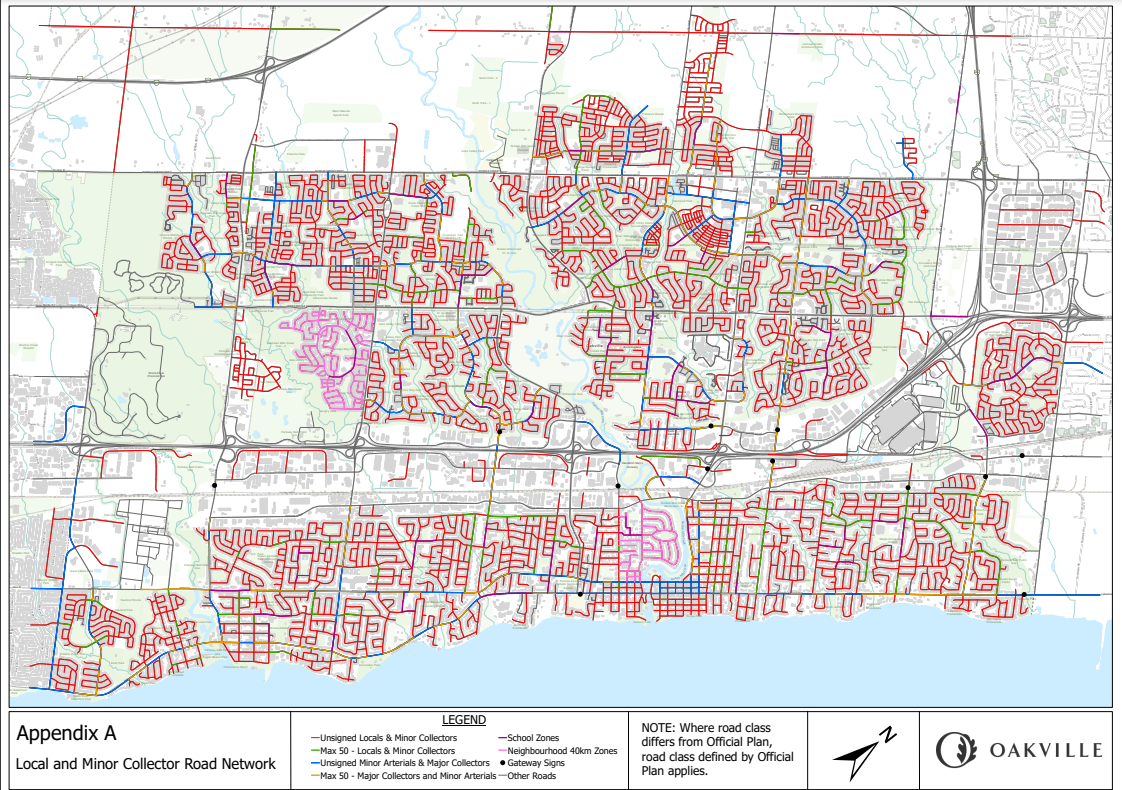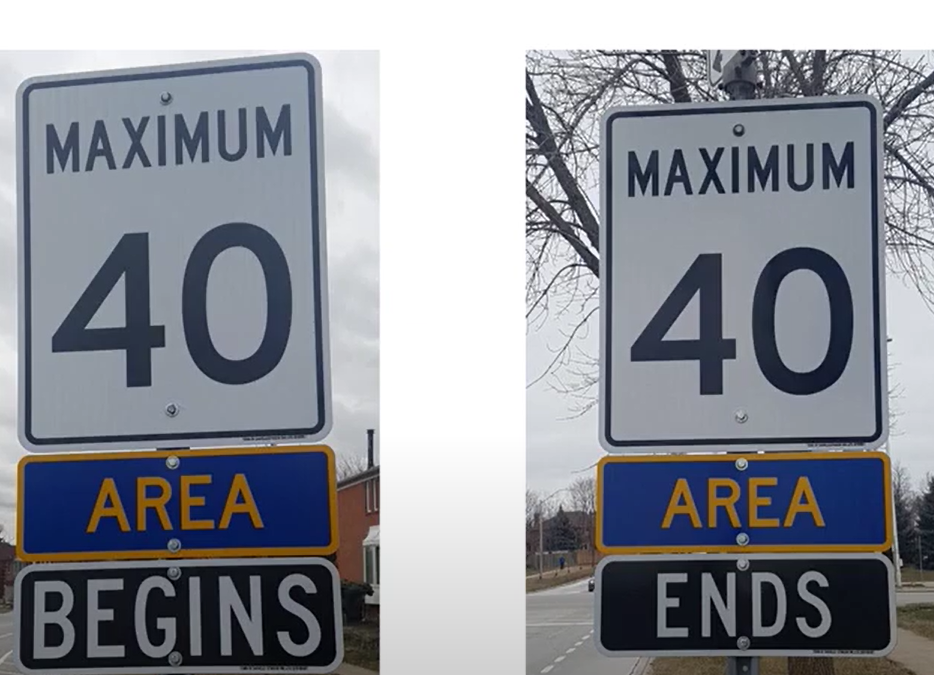Every red and pink line on this map will soon be a road with a 40 km/h speed limit.

On Oct. 18, town council will consider a plan to implement reduced speed limits for every local and minor collector road across Oakville, as well as a few other streets.
Town staff is recommending they make that change without adding speed limit signs to warn drivers.
Under current rules, all roads without signs are automatically deemed to have a default 50 km/h limit.
A plan to be considered by council on Oct. 18 calls for changing the town’s default speed limit to 40 km/h. That would allow the town to rely on “a robust communications plan” rather than signage to ensure that drivers know the new rules.
If the staff plan is approved, the new speed limit will be in effect next April.
The $36,675 recommended plan calls for outdated speed signs on local and minor collector roads to be removed and new 50 km/h signs installed on major collector and minor arterial roads. Gateway signs at entry points to the town will be updated to announce the default 40 km/h speed limit.
The signs will be changed between April and November next year, leading to a transition period with some inconsistent signs still in place.
“From an enforcement perspective, staff will work with the Halton Regional Police Service to inform motorists of the speed limit change prior to full enforcement of the reduced speed limits,” says the staff report.
News releases, social media posts, website articles, information postcards, transit advertisements and mobile street signs are among the tools staff are proposing to use over the next six months to inform drivers of the change to the default speed limit.
Photo radar cameras
While Halton police have “indicated their continued commitment to working with the town to enforce the Highway Traffic Act, including speed limits,” the staff report also outlines plans to introduce seven mobile photo radar speed cameras.
The cameras – known officially as automated speed enforcement – are being recommended for use in Oakville’s 21 designated community safety zones near elementary schools, starting in mid-2022.
Photo radar speeding tickets, issued to the plate holder of a vehicle regardless of who is driving, include a fine but no demerit points.
The program will cost about $585,000 but is expected to generate about $360,000 in revenue.
40 km/h pilot project didn’t lower speeds
Last January, the decision to lower the speed limit on local and minor collector roads was made when council approved a surprise last-minute motion brought by Ward 1 councillor Sean O’Meara.
O’Meara argued that lower speed limits had been shown to reduce collision and fatalities. He also invited several Oakville resident associations to endorse his plan.
But some of his council colleagues expressed concern about the lack of public consultation, the potential cost and the ultimate effectiveness of the change.
Councillors debated the change after receiving a staff report that found a year-long 40 km/h pilot project in a West River was ineffective at lowering driving speeds.
Town council eventually approved the motion to reduce the speed limit with a 13-2 vote.
Have your say
To offer your opinion on the proposed changes, send an email to town councillors or register as a delegate.
Town council meetings are also livestreamed on YouTube. Those watching on Oct. 18 will be given an opportunity to call in and share their comments.
